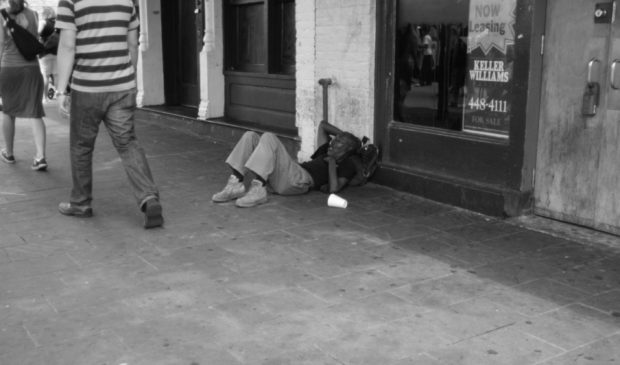Kitchen seeking more funding to house the homeless
Tuesday, August 9, 2022 by
Jo Clifton It’s budget time, and although City Manager Spencer Cronk’s team has put together its proposed budget for the 2022-23 fiscal year, each City Council member will be presenting their ideas for making the city a better place in the form of budget amendments or riders. Council Member Ann Kitchen has presented the first budget rider on the City Council Message Board.
Kitchen and her co-sponsors, Mayor Steve Adler and Council members Kathie Tovo, Chito Vela and Vanessa Fuentes, want to make sure that the city’s HEAL program – or Housing-Focused Encampment Assistance Link – continues to help individuals experiencing homelessness.
Her amendment states that it is a revenue-neutral direction to continue rapid rehousing programs and funding for a new bridge shelter when the current Northbridge Shelter is converted to permanent supportive housing. The cost estimate for that item is $1.75 million from the city’s General Fund or federal funds.
In the words of the rider, the “Homeless Strategy Division is directed to continue the HEAL Initiative serving at least 200 additional individuals by the end of FY 2022-23, drawing from a total of $3 million in ARPA (American Rescue Plan Act of 2021) funds currently dedicated for HEAL Rapid Rehousing through FY2025.” In addition, staff is directed to add one full-time employee for “additional oversight, coordination and training for shelter operator.”
In an amount yet to be determined, the Kitchen amendment also proposes to add certificates of obligation to supplement $10 million already allocated for shelter acquisition. The amount would be determined when the appropriate property is located.
She wrote in her message board post, “As you all are aware, the HEAL initiative is intended to compassionately close the most unsafe encampments in our city by offering people experiencing homelessness a direct pathway to crisis shelter and opportunities to attain stable housing, sustainably reducing public camping in unsafe areas.”
Council created the program in February 2021, with the first encampment relocation taking place in June of that year.
Nine encampments have been addressed since last June, “with a 10th currently in process. Approximately 90% of individuals offered transfer to the city’s two bridge shelters have accepted; this has resulted in 327 persons moving into the Northbridge and Southbridge shelters. To date, 94 people have exited to permanent housing, primarily through dedicated Rapid Rehousing programs run by community service providers such as Family Eldercare,” Kitchen wrote.
Kitchen told the Austin Monitor via email on Monday, “The rationale is written into the rider. This has been a successful program that offers people an immediate place to stay with a path to permanent housing. It’s important that this program continue at least at current levels so people have access to permanent housing.”
Adler told the Monitor via email, “I strongly support HEAL, this rider and all the other necessary steps for us to get more people out of tents, off the streets and into homes with appropriate services. The focus this community is giving homelessness now, including Finding Home ATX, has us on our way to being the first city our size to reach effective zero homelessness.”
Vela emailed the Monitor, “Camp closures without the HEAL initiative are unfair and ineffective. If we’re required to clear camps, the HEAL initiative is by far our best option. Ultimately, we need city-funded supportive shelter and adequate housing supply. I think CM Kitchen’s amendment is excellent.”
After Council effectively repealed an ordinance banning public camping in 2019, voters responded to homeless encampments with the passage of Proposition B on the May 2021 ballot. Prop B restored the ban on public encampments and resting in certain areas. Voter turnout was heavy, with 57 percent of those voting on the proposition supporting it.
Council will hold the first of several budget work sessions beginning at 10 a.m. today.
Photo made available through a Creative Commons license.
The Austin Monitor’s work is made possible by donations from the community. Though our reporting covers donors from time to time, we are careful to keep business and editorial efforts separate while maintaining transparency. A complete list of donors is available here, and our code of ethics is explained here.
You're a community leader
And we’re honored you look to us for serious, in-depth news. You know a strong community needs local and dedicated watchdog reporting. We’re here for you and that won’t change. Now will you take the powerful next step and support our nonprofit news organization?









